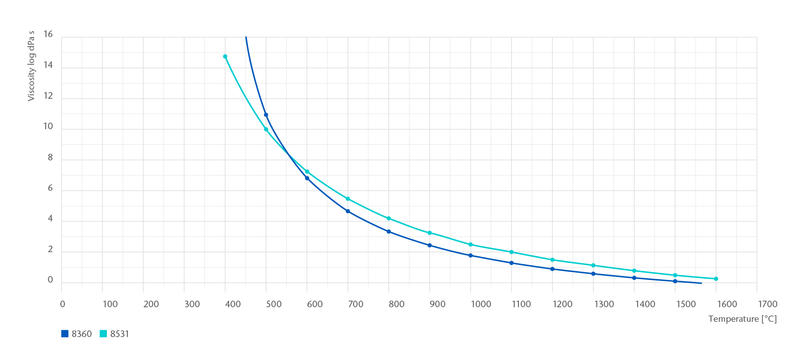Technical Details of SCHOTT 8360
Lead-free physical and chemical excellence for NTC thermistors
Viscosity thermal properties
Ideal for applications where low sealing temperatures are required, such as temperature-sensitive materials that need to be hermetically protected in NTC thermistor chips.
Viscosity thermal properties |
||
|---|---|---|
|
Coefficient of mean linear thermal expansion |
9,1 · 10-6 K-1 |
|
|
Transformation temperature Tg (ISO 7884-8) |
465 °C |
|
|
Glass temperature at viscosity ƞ in dPa · s: |
1013 (annealing point) (ISO 7884-4) |
470°C |
Electrical properties
Ideal for applications with high DK values and low dielectric loss, SCHOTT 8360 has excellent electrical insulation properties.
|
Electrical properties |
||
|---|---|---|
|
Log of the electric volume resistivity (Ω · cm) |
at 250°C |
8,5 |
|
tk 100 |
275°C |
|
|
Dielectric constant e for 1 MHz at 25°C |
7,3 |
|
|
Dielectric loss factor tan d for 1 MHz at 25°C |
24 1 · 10-4 |
|
|
Refractive index nd (l = 587.6 nm) |
1.566 |
|

Dr. Andre Petershans
Senior Product Manager Technical Tubing
